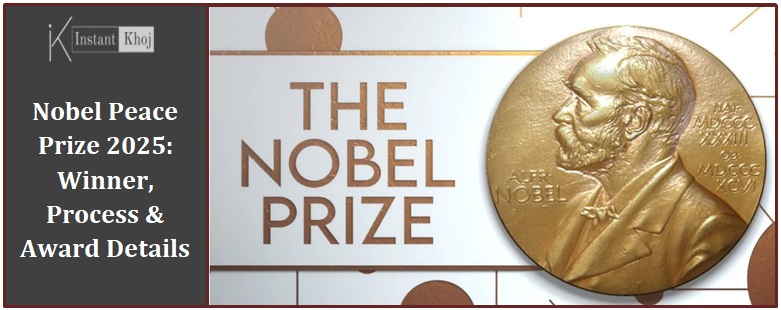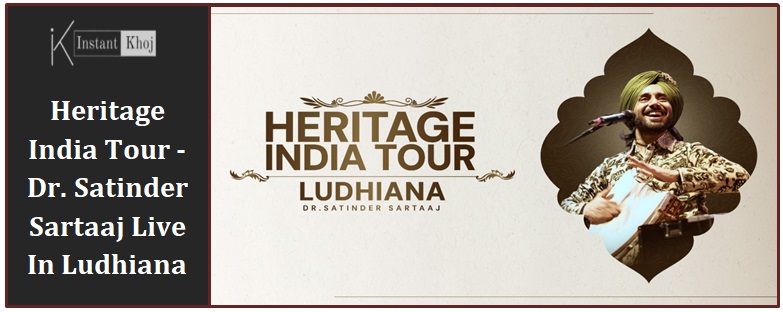Table of Content
The Nobel Peace Prize is one of the world’s most esteemed awards, recognizing individuals or organizations that have made outstanding contributions toward peace, diplomacy, human rights, and conflict resolution. First awarded in 1901, the prize is one of the five original Nobel Prizes established in the will of Alfred Nobel, the inventor of dynamite. Nobel’s vision was to reward those who work to “fraternize between nations, reduce standing armies, and promote peace congresses.”
The 2025 Nobel Peace Prize was announced on October 10, 2025, by the Norwegian Nobel Committee, with the formal award ceremony scheduled for December 10, 2025, in Oslo, Norway.
2025 Nobel Peace Prize Laureate
As of the announcement date, the official recipient of the 2025 Nobel Peace Prize is yet to be publicly revealed. The Norwegian Nobel Committee is expected to present the laureate at a press conference on October 10, 2025, at 11:00 AM CEST. The identity of the laureate will be widely reported in international media immediately after the announcement.
The prize may be awarded to:
- An individual who has played a pivotal role in peacemaking, conflict resolution, or human rights advocacy.
- An organization that has significantly contributed to peace, humanitarian efforts, or conflict mediation.
Historically, the Nobel Peace Prize has been awarded to heads of state, activists, NGOs, and international organizations, reflecting a diverse global commitment to peace.
Nominations Overview
For 2025, a total of 338 candidates were nominated, including 244 individuals and 94 organizations.
Only qualified nominators can submit nominations. These include:
- Members of national assemblies or governments
- University professors of relevant subjects
- Directors of peace research institutes
- Previous Nobel laureates
- Members of international courts
Nominations are strictly confidential and are kept sealed for 50 years. This ensures an unbiased, independent evaluation by the Nobel Committee. (Wikipedia)
Selection Process
The Norwegian Nobel Committee, composed of five members appointed by the Norwegian Parliament, is entrusted with selecting the laureate. Here’s how the process works:
- Nomination review – Every valid nomination is examined carefully.
- Expert evaluation – Experts and advisors are consulted to assess the nominee’s contribution to peace and human rights.
- Committee deliberation – The committee discusses, debates, and votes on potential winners.
- Decision announcement – The laureate is selected by majority vote and publicly announced.
Award ceremony includes:
- A gold medal
- A diploma
- A cash award (amount varies, approximately 10 million SEK / 2025 value)
The prize is intended to honor individuals or organizations that make a tangible, measurable impact on global peace and humanitarian efforts.
Important Dates
- October 10, 2025: Laureate announcement by the Norwegian Nobel Committee
- December 10, 2025: Award ceremony in Oslo, Norway
- December 10 onward: Laureate delivers Nobel Lecture (mandatory for recipients, usually highlighting peace strategies and global challenges)
Historical Context & Significance
The Nobel Peace Prize has been awarded to notable figures such as:
- Martin Luther King Jr. (1964) – Civil rights and non-violent activism
- Mother Teresa (1979) – Humanitarian work in India
- Malala Yousafzai (2014) – Advocacy for girls’ education
- International Campaign to Ban Landmines (ICBL) (1997) – Organizational efforts to remove landmines globally
The prize carries immense global recognition, highlighting peace initiatives and humanitarian contributions, and often inspires governments, organizations, and individuals to continue their efforts.
Why the 2025 Prize Matters
2025 has been marked by numerous geopolitical tensions, humanitarian crises, and global climate-related conflicts.
The laureate will symbolize the importance of diplomacy, dialogue, and human rights in mitigating modern conflicts.
The Nobel Peace Prize often influences policy, public awareness, and international collaboration, serving as a beacon for ongoing peacebuilding.
Controversies & Criticisms
Some selections have been politically contentious, leading to debate over the Committee’s impartiality.
Occasionally, recipients have been criticized for perceived contradictions between their actions and the prize’s mission.
Despite criticisms, the award continues to represent the highest honor in peace efforts worldwide, emphasizing ideals over politics.
Frequently Asked Questions (FAQ)
Q1: What is the Nobel Peace Prize?
An annual award for individuals or organizations making significant contributions to peace, human rights, and conflict resolution.
Q2: Who can be nominated?
Individuals, organizations, or institutions contributing meaningfully to peace. Only qualified nominators can submit candidates.
Q3: How is the recipient selected?
Evaluated by the Norwegian Nobel Committee through a rigorous and confidential process, consulting experts and reviewing impact.
Q4: When and where is the prize awarded?
Announced on October 10. Awarded on December 10 in Oslo, Norway, the anniversary of Alfred Nobel’s death.
Q5: What does the laureate receive?
Gold medal, diploma, cash prize (~10 million SEK), and global recognition.
Q6: Can organizations win the Nobel Peace Prize?
Yes. NGOs, humanitarian organizations, and international bodies have been awarded in the past.
Q7: Why is the prize so prestigious?
Established by Alfred Nobel in 1895, awarded since 1901, and recognizes enduring contributions to global peace and human welfare.
Q8: Has the Nobel Peace Prize ever been declined?
Yes. Some laureates have declined or postponed accepting due to political reasons or personal principles.
Q9: How has the prize impacted global peace?
Encourages diplomacy, nonviolent conflict resolution, and humanitarian initiatives. It raises awareness and often motivates further peacebuilding efforts.
Final Thoughts
The Nobel Peace Prize 2025 is not just an award — it is a symbol of hope, inspiration, and global responsibility. Whoever the laureate is, they represent humanity’s aspiration to resolve conflict, foster cooperation, and protect human dignity.
For official updates and more details, visit the Nobel Peace Prize official website.
Also Read:
RBI Keeps Repo Rate Unchanged at 5.5%: What It Means for You
YouTube Premium Lite India Launch — Affordable Ad-Free Plan
Follow Blog’son Instantkhoj for more latest stories and trending topics.




